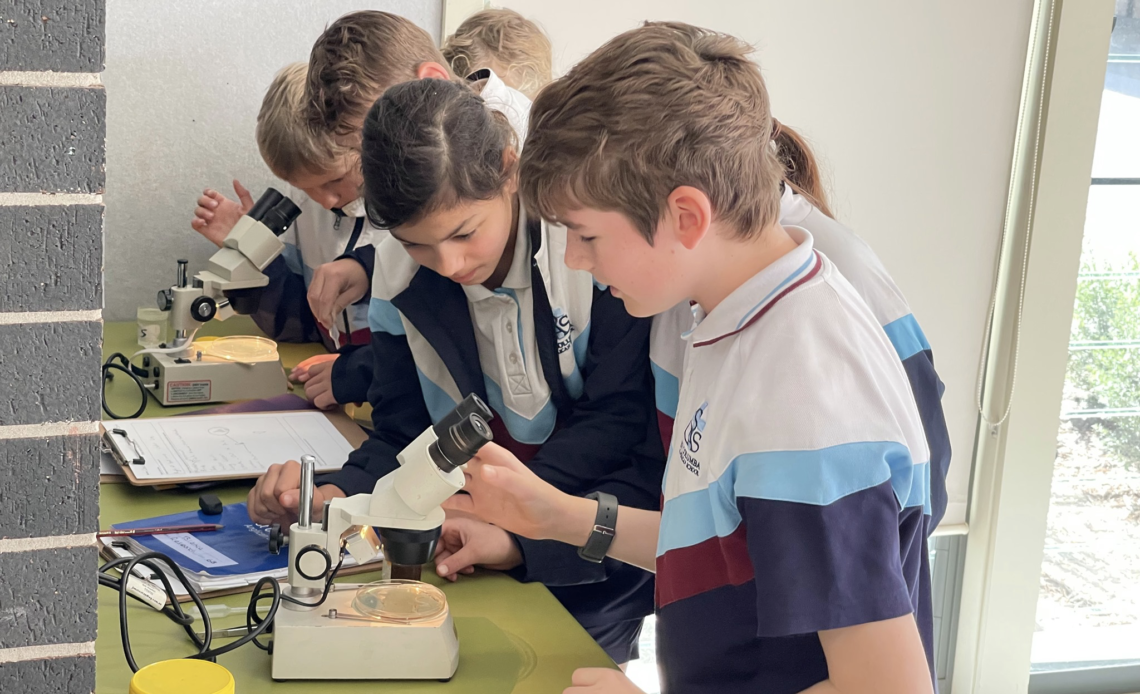
Earlier this year, St Columba Anglican School was announced as a partner in the Melbourne University New Metrics collaborative research venture. Headed up by internationally recognised academic researchers and thought-leaders, this partnership aims to reimagine and influence schooling across Australia.
What is the New Metrics for Success program and how has St Columba become involved?
New Metrics for Success is a partnership with the University of Melbourne and 37 schools (representing all sectors) across Australia. New Metrics aims to address the big challenges that face education in Australia today. Specifically, we are questioning whether the ‘whole’ school experience can be measured by a single number, or ATAR. Is there a better way for us to showcase the skills and abilities that young people have demonstrated at school, in the classroom, on a stage or the sports field? How can we capture evidence of a student’s character, critical thinking, collaboration, communication, citizenship and creativity? We know these are the measures that matter. Working with one of Australia’s leading universities to explore these possibilities is very exciting, so we jumped on board when the opportunity presented itself.
Why is it important to find new and more progressive ways of measuring student achievement and success?
For many years, success at school has been measured by a single number, an ATAR at the end of Year 12. However, 13 years of schooling develops so many more traits and dispositions in students, that cannot be measured in standardised exams or adequately represented by an ATAR. We have heard about the changing nature of the workforce, the impact of technology and how young people will change careers multiple times in their lives. We have also heard how acceptance to university is no longer solely based on ATARs for many courses. We need to develop young people who are resilient, and ready to thrive in a future that is constantly changing and filled with new challenges.
What is the goal for the students of St Columba when they graduate and enter their post-schooling life? What kind of people are we trying to create?
Perhaps a good way to answer this question is to consider how a parent might answer the following; what are the skills, traits or characteristics you wish for your children? When we speak to our parent community, we hear things like; sound moral character, honesty, work ethic, reliability, diligence, a problem solver, team player, trustworthy, and so on. For us, we capture all of these in what we call our six Cs; character, critical thinking, collaboration, communication, citizenship and creativity. This is the heart of our Deep Learning educational philosophy, a journey we’ve been on for a number of years.
What will this mean for the future of the long-standing metrics such as standardised testing and the ATAR?
The ATAR provides an easily accessible way of viewing success, although we would argue that it’s too narrow to fully represent a student’s learning. Interestingly, each year we are finding that more and more of our students are gaining entry into university before their ATAR is released. Our initial goal is not to replace the ATAR, rather supplement it with a Learner Profile, an extra credential that provides a bigger picture of a young person’s capabilities. Our partnership with the University of Melbourne is helping us to develop this credential in a robust and reliable way. Imagine leaving school, with an ATAR, and also a personal Learner Profile that shows your ability to work with others, communicate effectively, think outside of the box, contribute to your local community and much more. We are confident that this work will provide students with much broader credentials that captures both their academic achievements and other essential dispositions.
Our graduates will have been offered access to an education that not only allowed them to reach their academic potential but provided them with access to the knowledge and skills required to successfully enter the next phase of their lives as lifelong learners who are erudite, optimistic and disciplined.
Mr Paul Rikmanis
Director of Teaching and Learning

